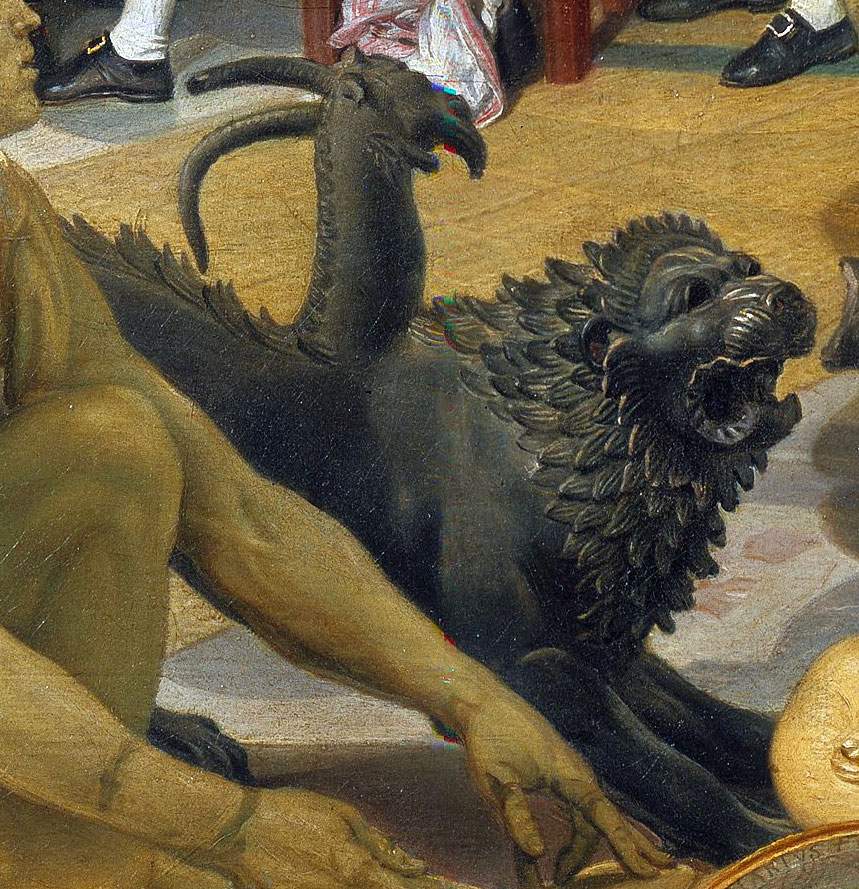The Uffizi offers a series of Etruscan-themed meetings
Starting June 12, 2019, the Uffizi Galleries will host a series of meetings entitled The Etruscans. Vicissitudes, Relations, Comparisons, Influences, Encounters: the lectures will be dedicated to the Etruscans, an ancient civilization of central Italy, for a total of 13 afternoon appointments held by some of Italy’s best-known scholars. The initiative has been organized in close collaboration with theNational Institute of Etruscan Studies, which, since 1925, has been Italy’s top organization for promoting the study of Etruscan civilization.
Here is the full program:
- June 12 (Giuseppe Sassatelli), The Etruscan World. Commonplaces and real knowledge;
- June 19 (Stefano Bruni), Florence, the Medici and the Etruscans. Archaeology, culture and politics in Palazzo Vecchio;
- June 26 (Luigi Donati), The Etruscans in the Tuscan Academies of the 1700s. Archaeological discoveries, monuments and reflections;
- July 3 (Enrico Benelli), Language and Writing of the Etruscans. From mixed origins to knowledge of history;
- July 10 (Giuseppe Sassatelli), The Etruscans and the Risorgimento. The Bologna Carnival of 1874 between city identity and national unity;
- July 17 (Maurizio Harari), Greek art and Etruscan art compared. From Winckelmann to Pallottino (and beyond);
- July 24 (Gianluca Tagliamonte), Etruscan Visions. Mario Schifano and Etruscan-Italic art;
- July 31 (Adriano Maggiani), The Etruscans in Modern and Contemporary Art. Marino Marini and his Etruscan citations;
- Aug. 28 (Giuseppe Maria Della Fina), Great travelers in the lands of the Etruscans. Landscapes, suggestions and research;
- Sept. 4 (Nico Stringa), The Etruscans in Modern and Contemporary Art. Arturo Martini and his terracottas;
- Sept. 11 (Petra Amann), The Etruscans and Anthropology. Johann Jacob Bachofen and the Etruscan matriarchy;
-Sept. 18 (Andreas Maximilian Steiner), The Etruscans and the Jews in the Literature of the 1900s. From Bassani to Wiesel;
- Sept. 25 (Giuseppe Pucci), The Etruscans in Comics. Stories, Inventions and Play.
“With this initiative we intend to celebrate the central role in the history and development of Italian and even European identity of the Etruscan civilization, whose spiritual legacy was particularly relevant to the constitution of the culture and political physiognomy of Renaissance Tuscany. It was precisely 500 years ago, in fact, that Cosimo I de’ Medici was born, 450 years ago he was crowned Grand Duke: the cycle of meetings is also dedicated to this great personage, who conceived of the Tuscany of that time as a new Etruria,” stressed the director of the Uffizi Galleries, Eike Schmidt.
“We wanted to give this cycle an unusual slant that we hope will be of interest: on the one hand the history of the discoveries and studies related to this civilization, which is a history deeply intertwined with the political and cultural history of our country starting with the Medici and their project of a great Kingdom of Etruria, up to the Risorgimento and national unity. And on the other hand, a series of reflections on the influence that Etruscan civilization has had with modern and contemporary art, literature and the culture of our most recent times. I think this collaboration of the National Institute of Etruscan and Italic Studies with the Uffizi Galleries and with Florence is very important. At the end of the year there will be a major Exhibition on the Etruscans in Bologna, and I like to think that this lecture series can also be a premise and an introduction to this exhibition,” added Giuseppe Sassatelli, professor of Etruscology and Italic Archaeology at the University of Bologna.
The lectures will be held in theVasari Auditorium and will be free admission subject to availability.
Image: Johan Zoffany, Tribuna of the Uffizi.
 |
| The Uffizi offers a series of Etruscan-themed meetings |
Warning: the translation into English of the original Italian article was created using automatic tools. We undertake to review all articles, but we do not guarantee the total absence of inaccuracies in the translation due to the program. You can find the original by clicking on the ITA button. If you find any mistake,please contact us.





























